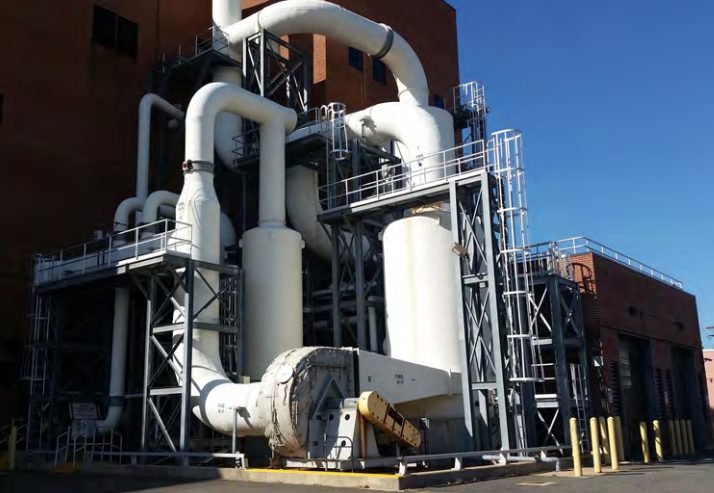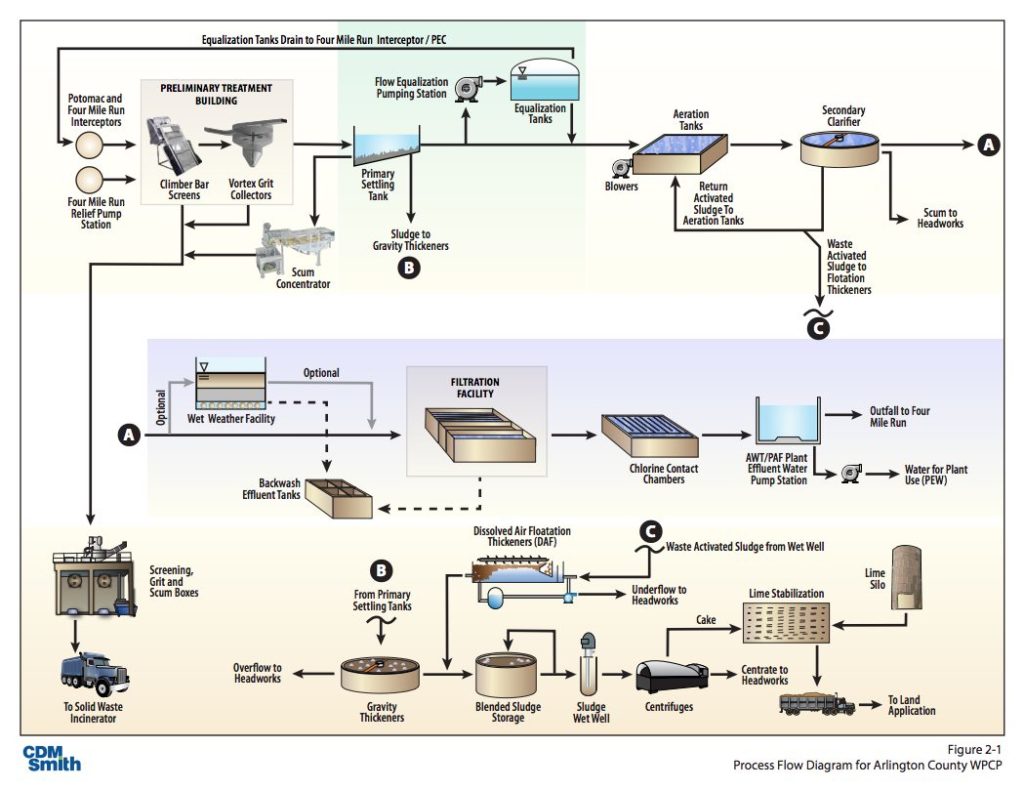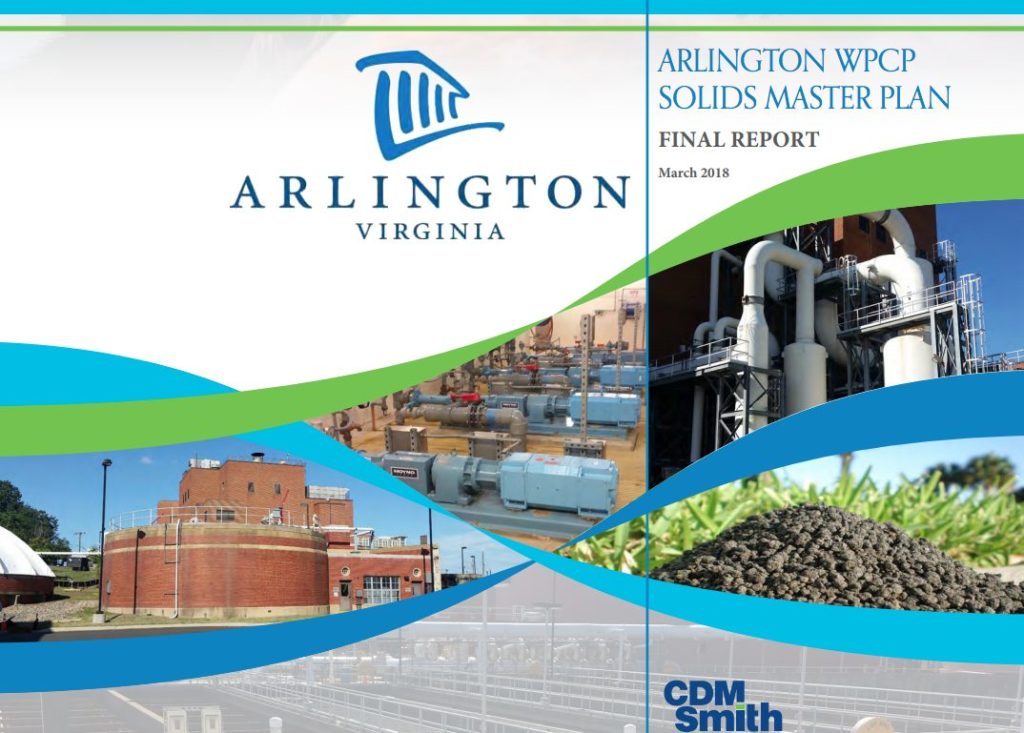People tend to flush and forget, but a plan approved by the County Board yesterday (Tuesday) could eventually result in the solid waste generated by Arlingtonians being deposited right back onto their lawns.
Fifteen years ago Arlington began a massive upgrade of the liquid side of its wastewater treatment facility — work that was finally completed several years ago at a cost of over a half billion dollars. Since then the solid side of the sewage plant has continue to degrade. Solid wastes are currently trucked away from the site five to six times each day. Instead, a new Solids Master Plan could transform that waste into soil enhancement for local yards and collect methane gas to be used in Arlington’s bus network.
“The solid site is now reaching the end of its natural life,” said Sarah McKinley, the president of the Columbia Heights Civic Association, who served as a community representative on the stakeholder committee. “We could replace it with current equipment or go to new technology that would really move us into the future.”
The new treatment is a three-phase process that will gradually replace equipment at the treatment center, with a total cost of $154.8 million spread out across those phases. The plan would require additional staff, but the cost is offset by reducing the number of truck trips from the site.
The new cleaning process would create two byproducts, a fertilizer-like biosolid that the plan says could be used by the public, the county, or commercial entities for soil treatment. Further processing — such as blending with soil or a “bulking agent” — would be required if the biosolid is to be locally distributed.
The other byproduct, a biogas compound, could be converted into compressed natural gas. The plan identifies the Arlington Transit bus fleet, conveniently parked across the street from the treatment facility, as a potential customer.
McKinley noted that there were concerns from residents living near the treatment site about pollution from the methane creation process and the routine gas flares from the treatment plant. However, she said added that committee believed the environmental and community benefits outweighed the concerns.
“I think it really moves us into the future,” said McKinley. “It makes sense. It’s a clean plan.”
The county is set to implement the new solid waste handling method in 2027.







